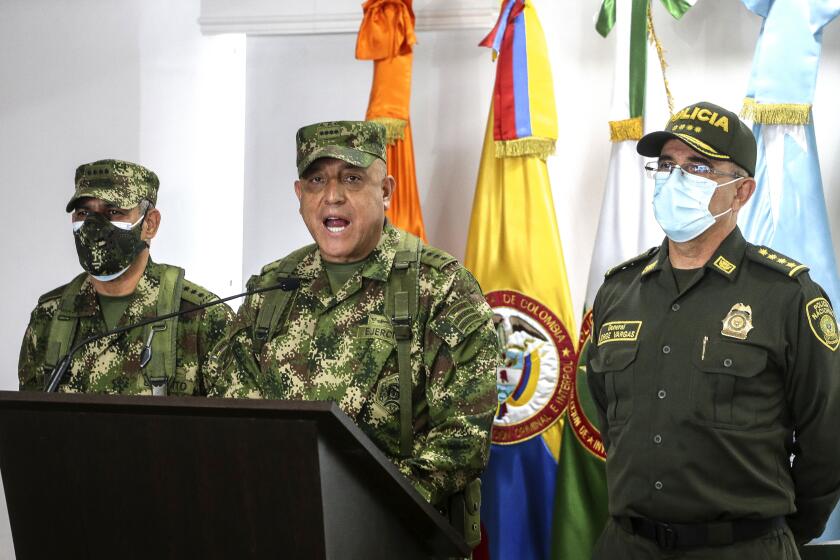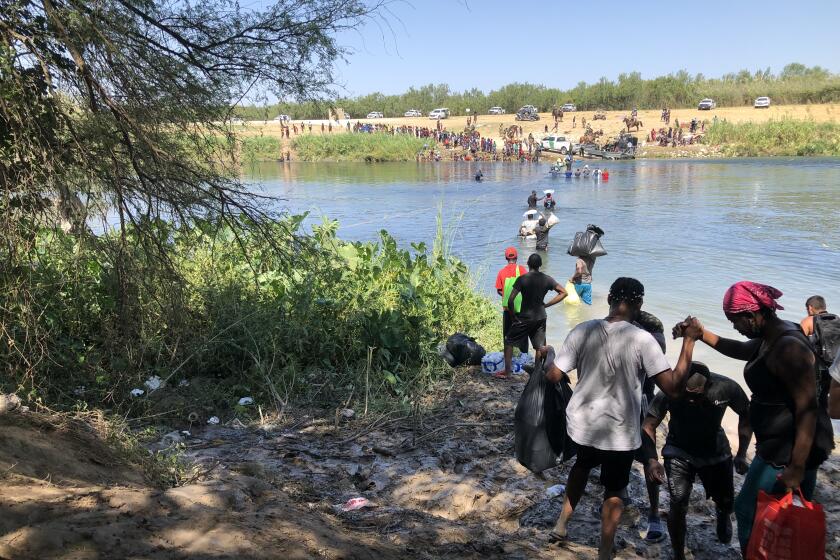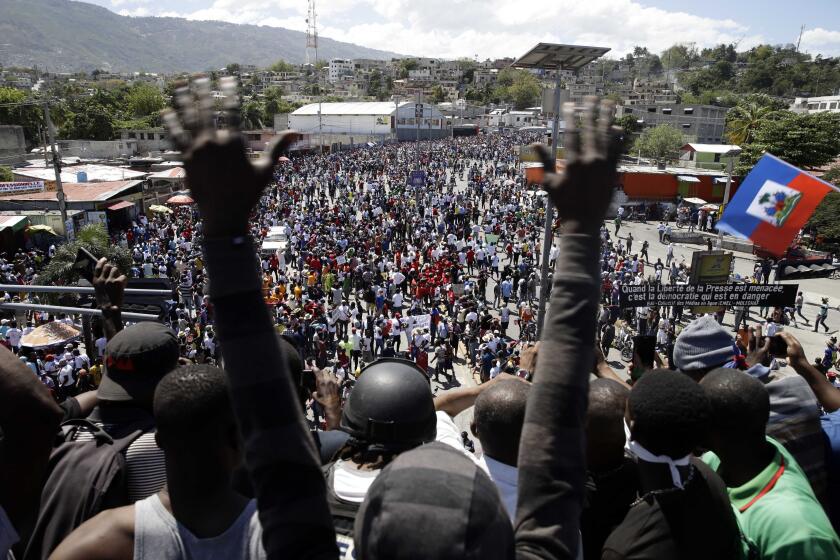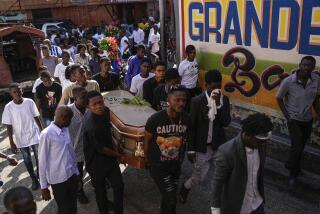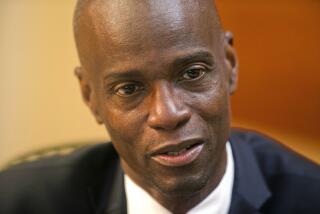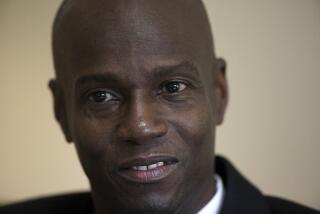Suspect in Haiti presidential slaying to be extradited to U.S.
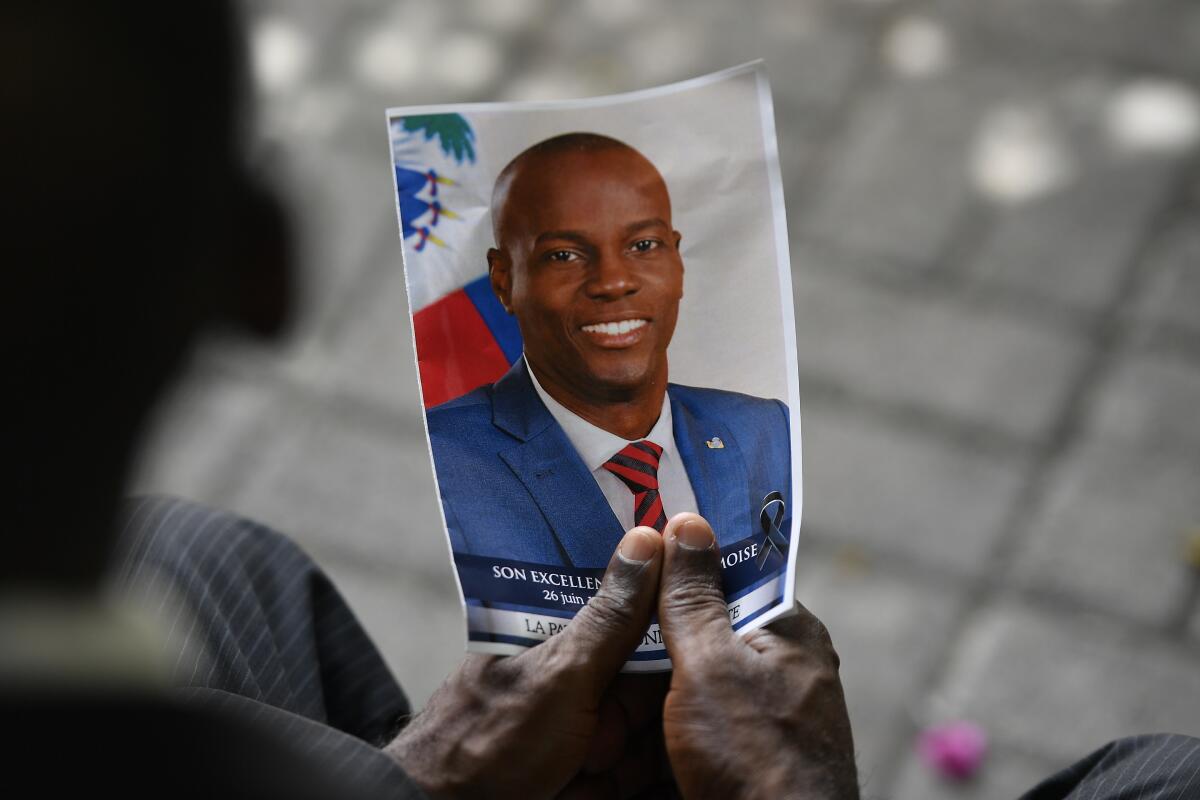
SAN JUAN, Puerto Rico — A former Haitian senator who is one of the main suspects in the slaying of former President Jovenel Moïse agreed Thursday to be extradited to the U.S. to face charges, his attorney told the Associated Press.
It wasn’t immediately clear when John Joël Joseph, who was arrested in Jamaica in January, would be extradited from the Caribbean island, defense attorney Donahue Martin said. He added that Joseph’s wife and two sons have requested asylum in Jamaica and are awaiting a response.
Martin declined to comment on the extradition agreement, and no further details were immediately available.
Ex-soldiers from Colombia have been implicated in the assassination of the Haitian president.
Two other suspects in the case — Haitian-Chilean businessman Rodolphe Jaar and Colombian soldier Mario Antonio Palacios — were recently extradited to the U.S. to face charges. Jaar was arrested in the Dominican Republic in January and Palacios was arrested in Jamaica in October.
Both are charged with conspiring to commit murder or kidnapping outside the United States and providing material support resulting in death, knowing or intending that such material support would be used to prepare for or carry out the conspiracy to kill or kidnap.
As Central Americans wait in Mexico for the U.S. to hear their asylum cases, Haitians in the U.S. are being expelled.
It wasn’t immediately clear what charges Joseph, the former Haitian senator, might face.
A report from Haiti’s National Police that hasn’t been made public but was obtained by the AP quoted multiple sources saying Joseph had several links to the July 7 attack, with at least one person identifying him as one of the leaders.
The sources said Joseph paid cash for rental cars used by the attackers and met with other suspects ahead of the killing, which occurred before dawn at Moïse’s private residence. The report also stated that the former senator introduced other suspects to Joseph Badio, the alleged leader of the plot who previously worked for Haiti’s Ministry of Justice and the government’s anticorruption unit until he was fired.
If the international community insists on supporting men connected to Jovenel Moise, there will be no free and fair elections in a nation devastated by corruption and poverty.
More to Read
Sign up for Essential California
The most important California stories and recommendations in your inbox every morning.
You may occasionally receive promotional content from the Los Angeles Times.
